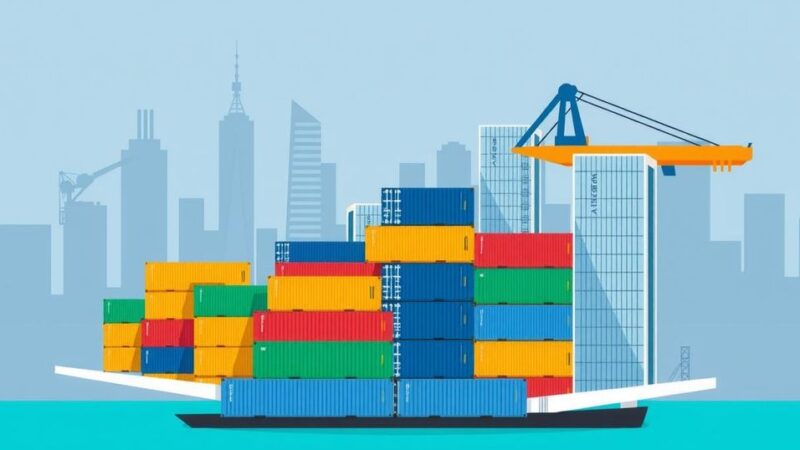Germany has launched an aid initiative for Syria amid ongoing violence post-Assad. The EU’s donor conference in Brussels included Syrian authorities for the first time, emphasizing the need for an inclusive political process. Germany pledged an additional 300 million euros to support humanitarian efforts. Despite some positive steps from the new Syrian leadership, recent violence poses significant challenges.
On a significant note, Germany commenced a new initiative for aiding Syria following the departure of former President Bashar al-Assad. This donor conference, taking place in Brussels, for the first time included representation from Syrian authorities, particularly interim Foreign Minister Assaad al-Shibani. As the European Union aims to lead Syria towards stability post-civil war, there is considerable urgency, particularly after a recent surge of violence in the region.
Concerningly, the fresh violence has led to diminished confidence in the newly installed Islamist-led government. German Foreign Minister Annalena Baerbock emphasized the importance of a politically inclusive process, stating, “There can only be a peaceful future for Syria if there is an inclusive political process.” Germany pledged an additional 300 million euros to support humanitarian efforts through the UN and other agencies.
Historically, the EU’s donor conferences have primarily focused on assisting Syrian refugees in neighboring regions while avoiding direct dealings with the Assad regime. This year’s conference aims to address immediate humanitarian requirements as the devastation left by the civil war has resulted in approximately 16.7 million individuals now in need of support.
The challenges faced by Syria include extensive infrastructural destruction and an economy disrupted by prolonged international sanctions. The situation is dire with the UN reporting that Syria would require over 50 years to return to its pre-war economic status. The new leadership under Ahmed al-Sharaa is advocating for international assistance to facilitate recovery.
While the EU has relaxed certain sanctions, it maintains that the Syrian authorities must fulfill their commitments towards an inclusive political transition. EU Foreign Affairs Chief Kaja Kallas remarked, “We need to continue with the lifting of sanctions, because if there is hope for the people, then there is also less chaos.” Recent developments in Damascus, including a constitutional declaration for a transitional period, suggest tentative progress.
However, these advancements are overshadowed by the violence on Syria’s coast, which reportedly claimed nearly 1,500 civilian lives, predominantly from the Alawite minority. Kallas stressed the need for accountability from the new Syrian leadership for such atrocities. Previous donor conferences have successfully raised significant funds, with last year’s totals reaching 7.5 billion euros, although this round may face challenges due to political changes in the United States affecting foreign aid budgets.
In conclusion, Germany’s initiation of a new aid drive for Syria signals a pivotal moment as the EU strives to stabilize the country in the wake of civil unrest. The inclusion of Syrian authorities marks a new chapter in dialogue, although rising violence presents substantial challenges. The commitment of over 300 million euros from Germany, alongside calls for an inclusive political approach, indicates a structured effort towards recovery. Nevertheless, achieving safety and rebuilding trust remains critical amid current uncertainties.
Original Source: www.taipeitimes.com






